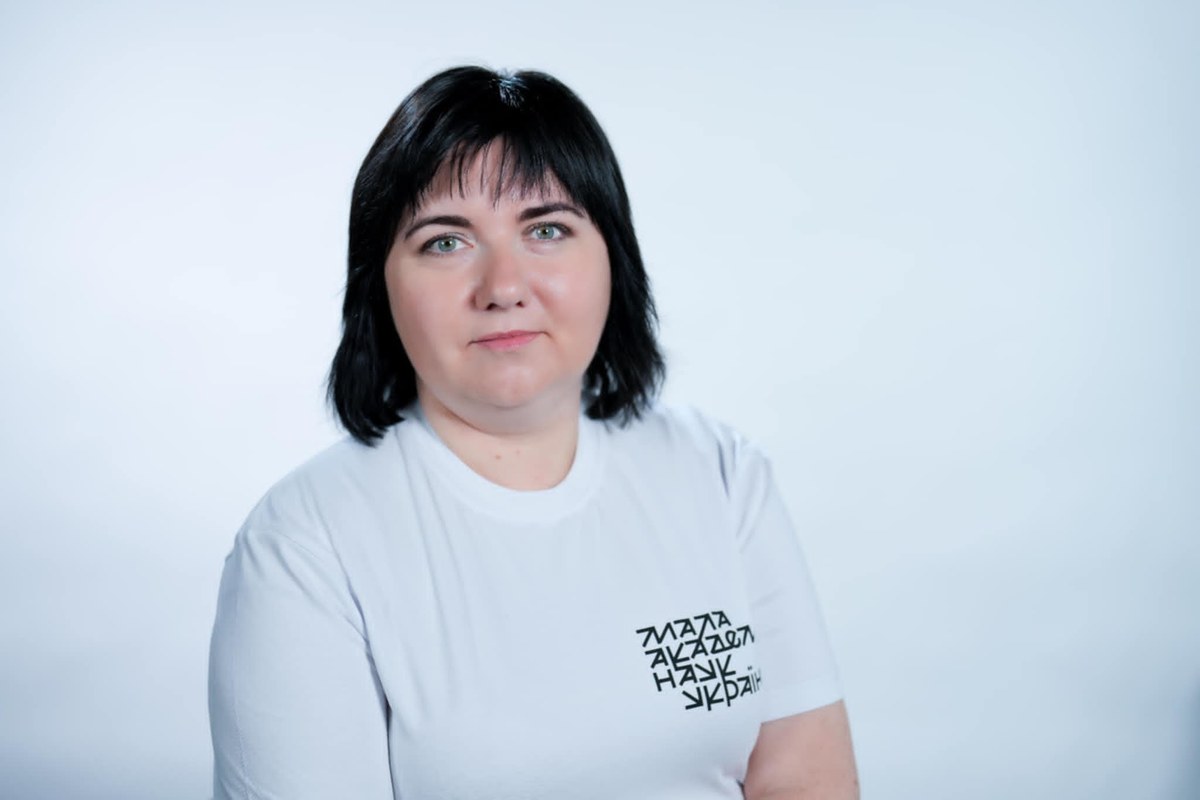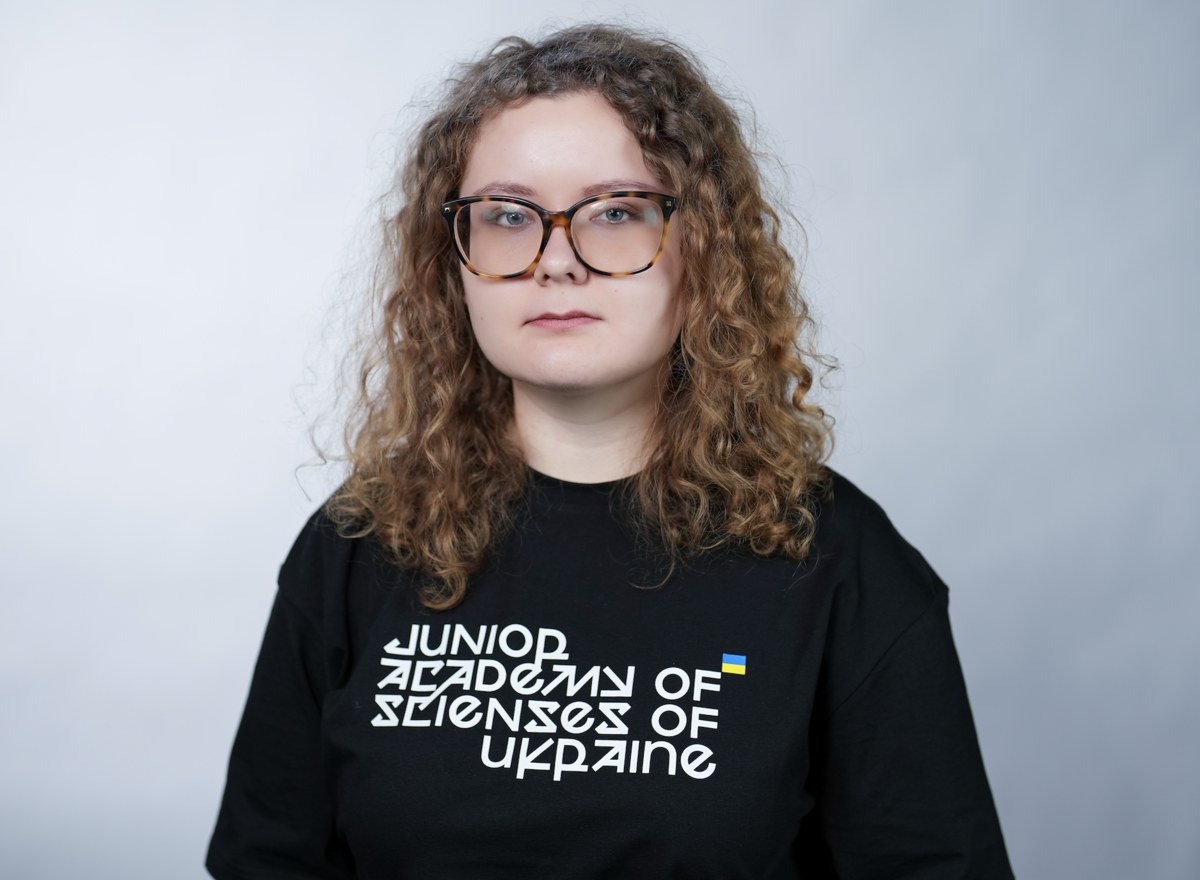Artificial intelligence is gaining momentum in various spheres of life. In particular, the educational process has not escaped this fate. For example, the head of the Ministry of Digital Affairs Mykhailo Fedorov, during the launch of the first AI Center of Excellence in Ukraine, recalled the «Mriya» project, the beta testing of which was completed at the end of December 2024, where the integration of artificial intelligence is also planned. It is there that individual educational trajectories for children will be built with the help of AI.
We decided to find out from Ukrainian experts who co-authored a study by the Small Academy of Sciences of Ukraine on the use of artificial intelligence in school education, published in the journal «Information Technologies and Learning Tools», what problems and benefits artificial intelligence brings to the educational process, what tools are worth paying attention to, and what to expect from Ukrainian education in 5-10 years under the influence of the AI invasion.
AI and war
The AI boom began in the late 2010s and then gained international popularity in the 2020s, along with the popularization of ChatGPT. It reached Ukraine along with the start of a full-scale war, but that’s where the correlation ends.
Lidia Davybida is an associate professor at the Ivano-Frankivsk National Technical University of Oil and Gas, who has been collaborating with the Laboratory of Geoinformation Systems and Remote Sensing of the Earth at the National Center «Small Academy of Sciences of Ukraine» for a long time and is engaged in the study of natural sciences and environmental protection, and has also worked with statistical data from various surveys.

She spoke about a study that analyzed the use of artificial intelligence among more than 1,500 teachers and students from all regions of Ukraine. The results showed that there was no significant statistical difference between the responses of residents of different regions. Accordingly, the spread of artificial intelligence among students and educators occurred evenly across the territory of Ukraine.
However, Svitlana Babiychuk, Doctor of Educational Sciences, visiting researcher at Harvard University, added that the war in Ukraine as a whole had a negative impact on the educational process, primarily due to unrest.

«For students to use AI, most of the time, nothing is needed except electricity, a computer or phone, and Internet access. But in some situations, this is a luxury for Ukraine. Think of blackouts,» she noted.

But even in such difficult conditions, Ukrainians continue to learn. «We have a full-scale war, we have a climate crisis and at the same time the rapid development of technologies, including AI,» emphasized Maria Biletska, who has an education in ecology and has been engaged in climate activism for a long time. It is this background that allows her, using artificial intelligence, to take a comprehensive look, in particular, at global climate change. Maria currently works as the head of the GIS and Remote Sensing Laboratory at the National Center for Scientific Research «MANU».
The speed of AI development
Maria Biletska recalled how, in the 2000s, during the heyday of the Internet, teachers did not encourage students to search for information there, but insisted on turning to books as primary sources. The situation with artificial intelligence, she said, is similar now.
«Education should take proactive steps, understand global trends in technology development, and prepare children for this future world, but now it’s the opposite, we’re only catching up, because technology is developing very quickly,» added her colleague Svitlana Babiychuk.
The interest and level of use of artificial intelligence among both teachers and students, as noted by Lydia Davybida, is constantly growing.
«And with the spread of AI, more and more attention is being paid to ethical issues and issues of academic integrity,» the scientist emphasizes.
According to a survey conducted in Ukraine in 2023, over 80% of teachers and over 90% of students have heard of and encountered artificial intelligence in one way or another. And, according to Lidia Davybida, this figure has not decreased.
Currently, a group of Ukrainian educators, including at the Academy of Sciences, is working on a methodology for integrating artificial intelligence into the educational process.
AI and misinformation
Although AI is called artificial intelligence, it does not have the thinking process itself. Instead, there are algorithms that select information at the user’s request from the data set on which it is trained. Although technologies are developing rapidly and, for example, ChatGPT o3-mini’s responses differ in quality by an order of magnitude from the free chatbot model, it is also not immune to bugs. AI sometimes continues to confidently issue information that is unreliable, or errors are made in calculations or lines of code. There is a lot of evidence of this.
Educators emphasize that in this process, it is important not to rely on chatbot responses thoughtlessly.
«We should not use AI technologies and think of them as a panacea,» emphasizes Svitlana Babiychuk.
She added that AI has both strengths and weaknesses. For example, it can be bad at math and calculations, but can quickly generate information and use its responses to suggest ideas, suggest alternatives, etc.
«If you don’t develop your own natural intelligence, the use of artificial intelligence can become not only useless, but even harmful,» quotes her university colleague Lydia Davybid.
Algorithms for using AI for education
Accordingly, keeping in mind that ChatGPT can always make mistakes, educators suggest approaching interaction with it as follows:
- verify it with other independent, reliable sources,
- ask the artificial intelligence clarifying questions,
- in a global sense, for broader projects, ask questions that would help see the picture from different angles.
For example, Svitlana Babiychuk recalled how in one of the courses at Harvard University students were asked to develop an educational policy. And then, in order to analyze it from all sides, the teachers suggested asking AI: about the strengths and weaknesses of the proposed educational policy and how its potential implementation would be assessed by the UN, UNESCO, or the president of the country, teachers, students, etc.
In addition, from her experience at Harvard, Svitlana Babiychuk believes that students should be given the best commercial access to AI available on the market, because in 5-10 years, these models will be free. And this approach will help create the added value of the future employee, the expert believes. For example, according to her, Harvard has created the Sendbox platform, which collects such artificial intelligence models as OpenAI GPT-4o Mini, OpenAI GPT-4o, Anthropic Claude 3 Haiku, Anthropic Claude 3.5 Sonnet, Meta Llama 3.1 8b, Meta Llama 3.1 70b, Google Gemini Flash 1.5, Google Gemini Pro 1.5, Mistral Large 2407 — with free access for university teachers and students.
«It is important to show the difference in the answers from several artificial intelligence models. This way, students will develop the skill of communicating with different models and understand their strengths and weaknesses. And which of them can be most useful for solving certain tasks,» says Svitlana Babiychuk.
Lidia Davybida also emphasized that, in addition to generative artificial intelligence, which is currently the focus, there are other types of tools and technologies that can be used in the educational process. In particular, according to her, the following are potentially effective for the educational industry:
- Platforms that use natural language processing methods to facilitate learning foreign languages, practicing pronunciation, and practicing communication.
- Tools for automated assessment and feedback, as well as tailoring an e-course to a specific subject. Such technologies will help to take into account the mistakes a student makes and select material for him to repeat and consolidate the material he has learned.
- Platforms that collect and analyze data for university and school administration. This will provide decision support for the management and implementation of various projects.
«Generative AI is very popular, but such platforms are also important for implementation in education and overcoming educational losses,» the expert summarized.
AI in homework
In January, the brother of an 11-year-old girl discussed on Reddit that his sister does all her homework using ChatGPT, even basic calculations, such as converting 3 minutes to seconds. The boy was most outraged that she «stupidly copies and pastes, while playing ‘The Squid Game’ in the background.» And how do Ukrainian students do their homework?
According to a 2023 survey, the data of which is cited by Lydia Davybida, more than 80% of students used AI, and 78% use it regularly. About 70% of students confirmed that they used AI to complete homework, but not purely thoughtlessly. In addition to preparing homework, children involved AI for self-development, searching for ideas, performing independent work and finding additional information. Lydia also noted that more than 30% of the surveyed students indicated that they use AI to optimize the learning process — automated creation of notes and speeding up routine tasks. Although it should be added here that the above survey included children focused on academic activities. And in the «general ward» the results may be slightly different.
The organizers of the survey asked Ukrainian children what they would recommend using AI in education for. In addition to the usual optimization of homework tasks, preparation of presentations and tests, there were also interesting and unusual ideas. For example, students suggested implementing AI for studying history. In particular, asking AI to describe events, for example, from the point of view of a certain political association, or to provide opinions of different sides on certain historical events.
How AI helps develop students’ skills
Different times require different skills, and the task of education is to teach children to form these skills. According to educators, AI also has benefits in the formation of certain knowledge and skills, when a large language model can answer students’ questions as many times as necessary for them to understand the material. However, at the same time, there are a lot of issues that need to be resolved by integrating artificial intelligence into sustainable education systems. Here, Svitlana Babiychuk emphasized the need for development:
- critical thinking: «AI will tell you and suggest things, but the responsibility is yours,» she noted;
- creativity;
- group collaboration;
- communication and the ability to speak to live people.
«Being able to communicate through emojis is ‘good,’ but public speaking skills: the ability to formulate and defend your opinion, structure information, argue answers, and convey them to opponents — these are all necessary. Using AI in this context requires additional, thorough research by educators,» she explained.
What Ukrainian education needs
Among the practical steps needed to support and develop Ukrainian education, experts say that the most necessary is funding so that projects have the funds to purchase servers and other necessary technical capabilities, as well as to ensure decent pay for experts and educators.
«Young people are now focused on success and popularity, and teachers, unfortunately, are losing out to bloggers and media personalities in this,» adds Lidia Davybida.
Also playing a key role are:
- enthusiasm and encouragement of educators;
- formation of information platforms, such as the online platform «To the Lesson», where, with the help of AI, educators gain access to the project’s educational materials and convenient tools for automating routine tasks in teachers’ work,
- development of courses for teacher training,
- consolidation of people, specialists from various fields, and the intellectual resource of Ukraine, in order to use them to convey to the community why education is important.
The future of Ukrainian education
Given the challenges our country and humanity as a whole have faced over the past 5 years, many people are convinced that Ukrainian education is in decline. The pandemic and the rapid transition to distance learning are blamed here, and now war, anxiety, shelling, and periodic power outages in some regions are added, which slows down and worsens the educational process. However, experts do not accept such statements.
«As an educator, I cannot agree that education is declining, although it is clearly changing and is currently in difficult conditions, like the entire Ukrainian society,» notes Lidiya Davybida.
Quoting global researchers, the expert noted that artificial intelligence is considered one of the tools for overcoming educational losses that have affected the entire world.
According to Lydia, to improve the situation in Ukrainian education, it is necessary to raise the awareness of educators, pupils and students about both the possibilities of AI tools and the ethical issues of its use.
Svitlana Babiychuk emphasized that despite the war, the personal tragedies of each family, the criticality of sleep deprivation, and so on, Ukrainian education has not reached a stalemate, which is good. She added that the most important thing now is victory in the war and the survival of the nation. «We will catch up with everything else very quickly, provided that we inject finance and return human capital,» the expert believes.
«In 5 years, the Ukrainian experience will be studied in other countries as an example of how the educational sphere can be resistant to the most large-scale challenges,» says Svitlana Babiychuk.




